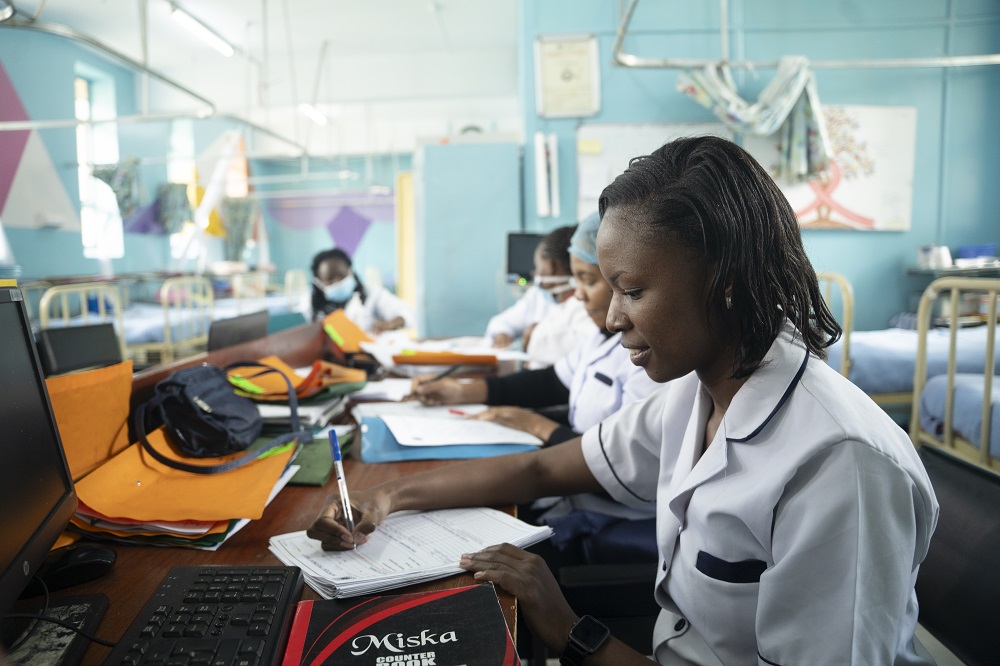
Three quarters of global cancer deaths are predicted to occur in Low-and Middle-Income Countries (LMICs) by 2030, yet these countries continue to receive the least support in tackling the disease, often leaving populations unable to access care. These major global inequities are deepened by an underfunding of research to address the unique challenges in low resource settings. Between 2016 and 2020, a staggering US$24.5 billion was invested in cancer research worldwide, with only 0.5% of investment allocated to research on cancer in LMICs.
Earlier this year, the City Cancer Challenge Foundation (C/Can) launched an initiative to develop and implement a research agenda that contributes to filling the global gap in evidence-based cancer care interventions in resource constrained settings. The focus is to develop local research capacity and advance implementation research for affordable innovations that strengthen systems and inform local policies.
Unfortunately, researchers who do not work with new medicines receive a lack of financial support in Brazil. Cancer care research, especially retrospective cohort studies, can be cheap and answer a lot of questions about improved cancer treatment and care.
Pedro Cacilhas, Medical Oncology Resident, Hospital de Clínicas de Porto Alegre.
Our approach to seed funding
Part of the initiative includes providing seed funding to support researchers in C/Can’s network of cities who investigate health systems and policy research projects through an implementation science lens. In 2023, five researchers across five cities were awarded a grant of 5,000 USD to kick-start exploratory studies on how to advance quality care in LMICs. All researchers received ethics review approval early this year and data collection and analysis is currently ongoing.
The 2023 grantees are:
- Alexsandre Iovashvili, Tbilisi, Georgia, Withholding the Real Diagnosis in Cancer Patients: Is it associated with better Quality of Life and Less Anxiety, Distress and Depression within the Georgian population?“
- Comfort Asoogo, Kumasi, Ghana, Using mobile health to reduce default and abandonment rates among children receiving treatment at the paediatric oncology unit of Komfo Anokye Teaching Hospital, Ghana
- Prof. Nirmala Bhoo Pathy, Greater Petaling, Malaysia, Identifying a core set of services for a financial navigation program for patients seeking cancer care in the public health system in Greater Petaling – A modified Delphi study”
- Patrick Gad Iradukunda, Kigali, Rwanda Evaluating the availability and impact of shortage for essential oncology drugs among patient attending the cancer treatment centers in Rwanda
- Pedro Cacilhas, Porto Alegre, Brazil, Analysis of Time to Initiate Cancer Treatment on Breast Cancer Patients treated in a Hospital in Porto Alegre: a retrospective cohort from 2022 to 2023
Professor Nirmala Bhoo Pathy, Professor of (Clinical) Epidemiology, Faculty of Medicine, University Malaya, is working towards developing and implementing a financial navigation programme for Malaysians living with cancer to alleviate financial toxicity. She said
The grant has been instrumental in facilitating our qualitative interviews and the subsequent development of the Delphi method to prioritise high-impact financial services. It has provided the resources necessary to engage diverse stakeholders, allowing us to gather vital insights that inform the design of our financial navigation programme.
As part of his breast cancer study on time to initiate treatment in a hospital in Porto Alegre, Pedro Cacilhas, Medical Oncology Resident, Hospital de Clínicas de Porto Alegre, has conducted an analysis on over 300 patients. The results have already shown that education levels and race impact treatment initiation, with significant delays observed for Black patients and brown/mixed (‘pardo’) patients compared to White patients. Where biopsies were conducted has also shown to be a factor with treatment initiation times. He is looking to expand his study to other tertiary hospitals and hoping to conclude his manuscript by the end of 2024.
The grant definitely accelerated most of the steps of our research. I believe it has a significant importance because there’s a lack of information on patients in our region and, until the beginning of our project, we did not know how different factors impacted our own population.
Seed grants play a critical role in advancing local research, serving as the financial catalyst to transform ideas into innovative projects. C/Can recognises the multiplying effect of seed funding, not only in addressing global knowledge gaps for the oncology community, but also strengthening local capacity.
This year, C/Can is expanding the programme and currently accepting applications for eight seed grants to be awarded in 2024.
The C/Can Seed Grant has been instrumental and provided an opportunity to learn and understand implementation sciences, which is also essential in research.
Gad Patrick Iradukunda, Biomedical Laboratory Scientist in Kigali Rwanda, Seed Grant recipient and participant in C/Can’s Implementation Science Masterclass in collaboration with the University of Melbourne.
Seed grant applications are open until 10 November 2024. Apply here.





